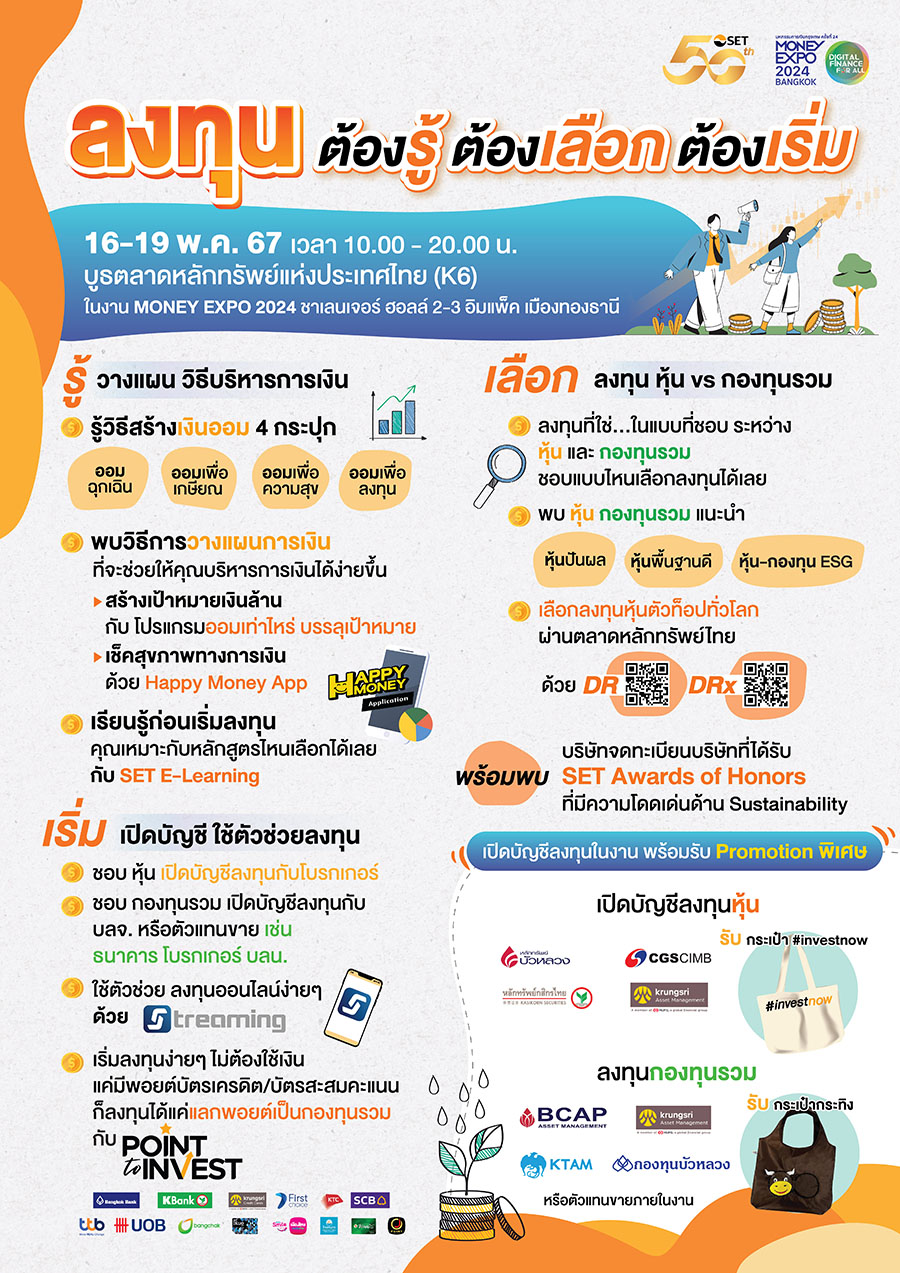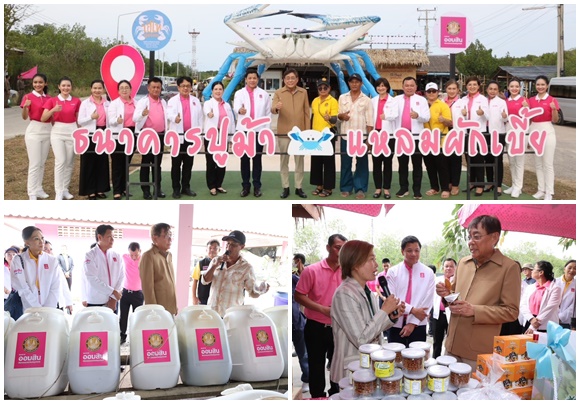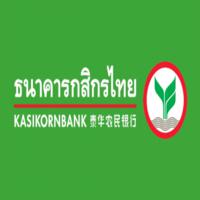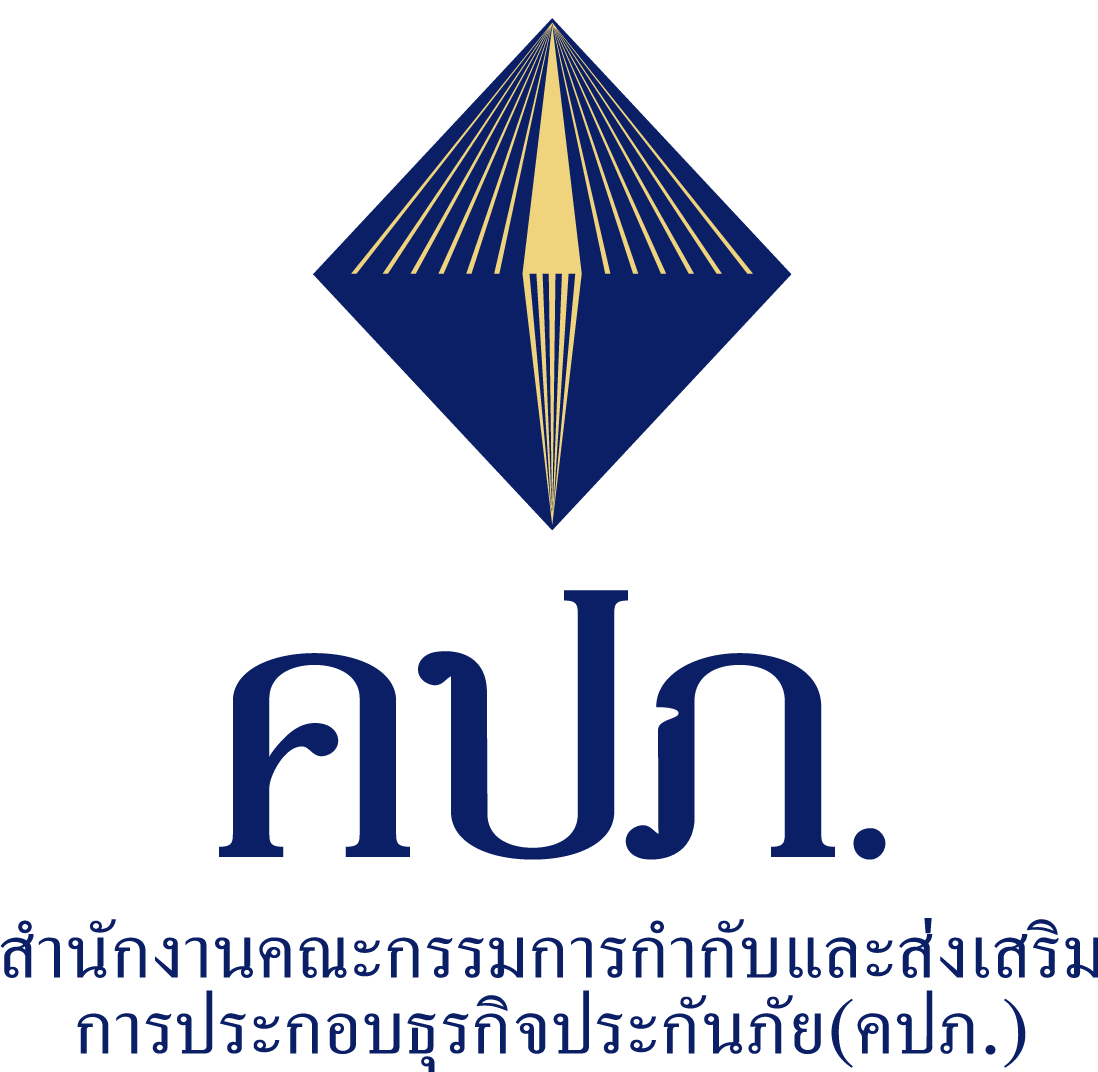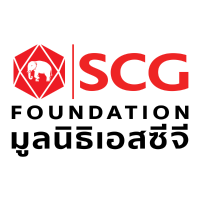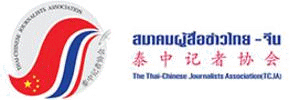- Details
- Category: การแพทย์-สธ
- Published: Monday, 15 October 2018 12:17
- Hits: 5316
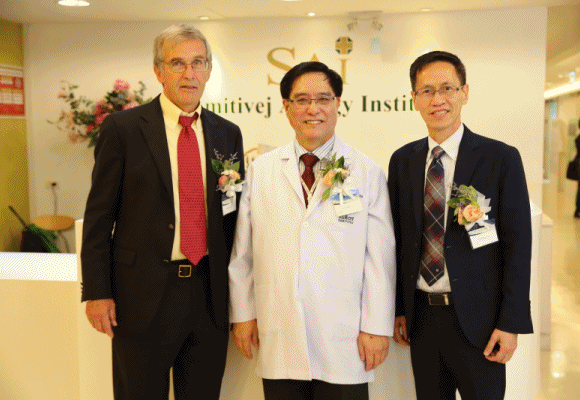
สมิติเวช ชี้คนไทยเสี่ยงเป็นโรคภูมิแพ้อาหารเพิ่มขึ้น ปล่อยไว้อันตรายถึงชีวิต
สถาบันโรคภูมิแพ้สมิติเวช ชี้คนไทยเสี่ยงเป็นโรคภูมิแพ้อาหารสูงขึ้นถึง 300-400 เปอร์เซ็น สาเหตุหลักมาจากพฤติกรรมการใช้ชีวิตและวิถีชีวิตที่เปลี่ยนไปของคนไทย ปัจจัยการเกิดโรคมาจากความเป็นอยู่ที่ดีและรักสะอาดมากขึ้นส่งผลให้ภูมิคุ้มกันที่เคยต่อสู้กับเชื้อโรคหันไปต่อสู้กับสารอาหารเหล่านั้นแทน ชี้อาการแพ้กระทบ 5 ระบบในร่างกาย แนะรีบพบแพทย์เฉพาะทาง หากเพิกเฉยส่งผลอันตรายถึงชีวิต ล่าสุดเชิญ’ดร.ฮิวจ์ เอ แซมพ์สันง’ (Dr. Hugh A Sampson) ผู้เชี่ยวชาญด้านภูมิแพ้ระดับโลก มาให้ความรู้ที่ถูกต้องพร้อมวิธีการรับมือกับโรคภูมิแพ้อาหาร
ศ.เกียรติคุณ นพ.ปกิต วิชยานนท์ ผู้เชี่ยวชาญโรคภูมิแพ้และภูมิคุ้มกันวิทยา ผู้อำนวยการสถาบันโรคภูมิแพ้สมิติเวช โรงพยาบาลสมิติเวช ธนบุรี กล่าวว่า “ปัจจุบันคนไทยเสี่ยงเป็นโรคภูมิแพ้อาหาร(Food Allergy) สูงขึ้น 300-400 เปอร์เซ็น จากอดีตที่มีผู้ป่วยเฉลี่ยอยู่ที่ปีละ 1 คน แต่ในปัจจุบันพบผู้ป่วยแพ้อาหารสูงถึงสัปดาห์ละ 2 คน ปัจจัยการเกิดโรคมาจากวิถีการใช้ชีวิตที่ดีขึ้นของคนไทยจะสังเกตได้ว่าผู้ป่วยที่เป็นโรคภูมิแพ้อาหารส่วนใหญ่จะมีฐานะอยู่ในระดับกลางถึงดี เวลาทานอาหารก็เลือกทานในร้านที่มีความสะอาดอยู่ตลอด หรือทานอาหารจากร้านสะดวกซื้อที่มีกรรมวิธีการผลิตที่สะอาด ทำให้ร่างกายได้รับเชื้อโรคน้อยลงส่งผลให้ภูมิคุ้มกันที่เคยต่อสู้กับเชื้อโรคหันไปต่อสู้กับสารอาหารเหล่านั้นแทนจนเกิดเป็นอาการแพ้เกิดขึ้น
“โรคแพ้อาหารพบได้บ่อยมากในประเทศไทยตั้งแต่เด็กไปจนถึงผู้ใหญ่ โดยปกติอาหารที่ทำให้เกิดอาการแพ้มีได้ 6 ชนิดใหญ่ ได้แก่ นม ไข่ แป้งสาลี ถั่วทั้งหลาย อาทิ ถั่วลิสง ถั่วเหลือง อัลมอนด์ มะม่วง หิมพานต์ และสุดท้ายอาหารทะเลซึ่งแบ่งเป็น 2 ชนิดคือกุ้งและปลา ในประเทศไทยนั้นอาหารทะเลเป็นอาหารที่ทำให้เกิดการแพ้มากที่สุดส่วนใหญ่จะเกิดกับผู้ใหญ่ แต่อาหารที่จะทำให้เกิดการแพ้ในเด็กและแพ้รุนแรงนั้นพบว่าเป็นแป้งสาลี เรามักจะได้ยินว่าการแพ้อาหารบางชนิดจะอันตรายถึงชีวิต ซึ่งก็เป็นจริงเพราะในสหรัฐอเมริกา ยุโรปและออสเตรเลียการแพ้ถั่วลิสงเป็นเรื่องใหญ่มากเรามักจะได้ยินว่ามีการเสียชีวิตจากการแพ้ถั่วลิสงบ่อยๆ เพราะไม่รู้ว่ามีถั่วเป็นส่วนผสมในอาหารนั้น สำหรับประเทศไทยแล้วการแพ้ถั่วลิสงยังไม่มากนัก แต่ก็มีแนวโน้มสูงขึ้นเรื่อยๆ”นพ. ปกิต กล่าว
สาเหตุส่วนใหญ่ของการแพ้อาหารมาจากความผิดปกติของระบบภูมิคุ้มกันภายในร่างกาย อาการของโรคนี้จะแสดงความผิดปกติของร่างกายขึ้นมาหลังจากทานอาหารบางอย่างที่ร่างกายแพ้เข้าไป เช่น เด็กที่แพ้แป้งสาลี เนื่องจากภูมิคุ้มกันในลำไส้ของเด็กยังไม่แข็งแรง ระบบทางเดินอาหารยังมีกลไกการป้องกันหรือทำลายสิ่งแปลกปลอมต่างๆ ได้ไม่สมบูรณ์ น้ำย่อยและเอนไซม์ต่างๆ ยังไม่สามารถทำงานได้เต็มที่ ทำให้โปรตีนในอาหารที่รับประทานเข้าไปนั้น ยังคงเหลือส่วนที่กระตุ้นภูมิคุ้มกัน นำไปสู่การตอบสนองทำให้เกิดปฏิกิริยาแพ้อาหาร หรือ ผู้ใหญ่ที่พบว่าแพ้อาหารทะเลมากที่สุดนั้นเนื่องจากการได้รับสารก่อภูมิแพ้ตั้งแต่เด็ก จนค่อยๆ ก่อให้เกิดอาการ เมื่อเวลาผ่านไปทำให้บางคนอาจเพิ่งพบว่ามีอาการแพ้ในภายหลังจากที่เมื่อก่อนเคยทานได้ตามปกติ
โดยอาการแพ้ที่เกิดขึ้นกับร่างกายนั้นแบ่งออกเป็น 5 ระบบ ได้แก่ ระบบผิวหนัง มีอาการเป็นลมพิษเฉียบพลันหรือเรื้อรัง ผิวหนังอักเสบบวมรอบๆ ปากและตา ระบบหายใจ มีอาการจมูกอักเสบ หลอดลมอักเสบบวมบริเวณกล่องเสียงและหลอดลม เป็นหืด ระบบทางเดินอาหาร มีอาการคันปาก คันคอ คันลิ้น ปวดท้อง อาเจียน และลำไส้อักเสบเวลาถ่ายอาจมีเลือดปะปนออกมาด้วย ระบบประสาท มีอาการทำให้ผู้ป่วยมึนงง ระบบหัวใจ มีอาการความดันโลหิตต่ำ และอาจถึงขั้นเกิดอาการช็อกได้
“สิ่งที่สำคัญนอกเหนือจากอาการภูมิแพ้แล้ว คือ คนไทยบางส่วนยังไม่เข้าใจและตระหนักถึงความอันตรายของโรคภูมิแพ้อาหาร ส่วนใหญ่มักคิดว่าโรคนี้ไม่ใช่โรคที่ร้ายแรงหากมีอาการแพ้ก็เป็นเพียงแค่ผื่นคันหรืออาการอื่นๆ ที่ไม่ส่งผลถึงชีวิต แต่ในความเป็นจริงแล้วหากผู้ป่วยมีอาการแพ้มากกว่าสองระบบ หรือที่เรียกว่า การแพ้รุนแรง (Anaphylaxis) ซึ่งอาจส่งผลให้ผู้ป่วยถึงขั้นเสียชีวิตได้ ดังนั้น ผู้ป่วยที่มีอาการแพ้รุนแรงควรเข้ารับการรักษาและวินิจฉัยจากแพทย์ผู้เชี่ยวชาญโดยเร่งด่วน”นพ.ปกติ กล่าว
สำหรับ แนวทางการรักษาอาการของโรคภูมิอาหารที่ถูกวิธี คือ ควรเริ่มจากการตรวจหาภูมิแพ้อาหารนั้นว่าเกิดจากสาเหตุอะไร โดยสถาบันโรคภูมิแพ้สมิติเวช โรงพยาบาลสมิติเวช ธนบุรี ได้พัฒนานวัตกรรมการตรวจเช็คที่แม่นยำ 2 วิธี คือ ‘การใช้สารสกัดจากอาหาร’ ที่ผู้ป่วยมีอาการแพ้มาสัมผัสร่างกายและ’การเจาะเลือด’ซึ่งการเจาะเลือดจะให้ผลที่แน่นอนกว่าและสามารถวัดระดับภูมิแพ้ได้อีกด้วย
เมื่อทราบถึงสาเหตุของอาการแพ้ที่ชัดเจนแล้ว ลำดับต่อมาคือขั้นตอนการรักษา เพื่อให้ผู้ป่วยหายจากอาการภูมิแพ้ที่เป็นอยู่ โดยมีแนวทางในการรักษา แบ่งออกเป็น การสร้างภูมิต้านทานให้กับร่างกาย (Oral immunotherapy) ด้วยการให้ผู้ป่วยรับประทานอาหารที่แพ้ทีละน้อยเพื่อให้ร่างกายสร้างภูมิต้านทาน ซึ่งวิธีนี้เป็นวิธีการรักษาที่ต้องมีแพทย์ผู้เชี่ยวชาญอยู่ดูแลผู้ป่วยอย่างใกล้ชิด และ ‘การปรับเปลี่ยนพฤติกรรม” ผู้ป่วยควรปรับเปลี่ยนพฤติกรรมการทานอาหารให้ระมัดระวังการเลือกทานอาหารมากขึ้น หลีกเลี่ยงและตรวจสอบส่วนผสมอย่างละเอียดทุกครั้งก่อนรับประทานอาหาร นอกจากนี้ ผู้ประกอบการด้านอาหาร ควรให้ความสำคัญกับส่วนผสมต่างๆ ที่ใช้ในการปรุงอาหาร และควรแสดงป้ายบอกรายละเอียดของอาหารอย่างชัดเจน เพื่อให้ผู้ป่วยสามารถหลีกเลี่ยงอาหารที่ตนแพ้ได้ เนื่องจากผู้ป่วยส่วนใหญ่ที่เกิดอาการแพ้สาเหตุหลักเป็นเพราะไม่ทราบว่าอาหารที่ตัวเองรับประทานเข้าไปนั้นมีส่วนผสมของอาหารที่ตนมีอาการแพ้ปะปนอยู่ด้วย
ในการนี้ สถาบันโรคภูมิแพ้สมิติเวช โรงพยาบาลสมิติเวช ธนบุรี ยังได้เชิญองค์กรด้านภูมิแพ้ ชั้นนำระดับโลกและคณะแพทย์ชื่อดัง มาร่วมวิเคราะห์พร้อมแลกเปลี่ยนมุมมองด้านการรักษาโรคภูมิแพ้อยู่ตลอดเวลา เพื่อพัฒนาการรักษาภายในประเทศไทยให้มีประสิทธิภาพที่ดียิ่งขึ้น โดยล่าสุดได้เชิญ ดร.ฮิวจ์ เอ แซมพ์สัน (Dr. Hugh A Sampson) ประธานบริหาร Icahn Medical School at Mount Sinai Hospital ประเทศสหรัฐอเมริกา ผู้เชี่ยวชาญด้านภูมิแพ้ระดับโลกมาร่วมประชุมวิชาการ 1St International Samitivej Allergy Institute Symposium, Food Allergy ‘The State of the Art’เพื่อเจาะลึกวิกฤตการณ์แนวโน้มความรุนแรงเกี่ยวกับโรคภูมิแพ้อาหาร ความเสี่ยงที่อาจส่งผลต่อชีวิตของผู้ป่วยและความเข้าใจผิดๆ เกี่ยวกับโรคภูมิแพ้อาหาร พร้อมร่วมแลกเปลี่ยนความคิดเห็นกับผู้เชี่ยวชาญด้านภูมิแพ้อาหารของสถาบันโรคภูมิแพ้สมิติเวช โรงพยาบาลสมิติเวชธนบุรีรวมทั้งโรงพยาบาลในเครือสมิติเวชอีกด้วย
Samitivej warns more Thais at risk of food allergies Failure to get treatment can cause a life-threatening reaction
According to Samitivej Allergy Institute, the number of Thais at risk from food allergies has surged by 300-400 percent in recent years as a result of lifestyle changes. The risk factors come from good living and more awareness of cleanliness, which have affected the body’s immune system and sees it fighting which switch the immune response against food rather than disease. Allergies affect 5 functions of the body and Samitivej recommends that anyone with a suspected food allergy should consult a medical specialist or an allergist as a reaction could be life threatening. Recently, the hospital invited Prof Dr. Hugh A Sampson, a foremost authority on food allergies allergy, to share his knowledge and explain how to prepare for the symptoms of food allergies.
Prof. Emeritus Pakit Vichyanond, Director of the Samitivej Allergy Institute at Samitivej Thonburi Hospital, reveals that the number of Thai people who are at risk of developing food allergy symptoms has risen by 300-400 percent. The hospital sees an average of two patients with food allergy per week compared to just one patient a year in the past. The better life enjoyed by most Thais is a major risk factor and food allergies are today increasingly seen in middle-class, well-off individuals. These people always choose clean restaurants or buy food from stores that meet high production standards. As a result, they suffer from fewer diseases and this affects the immune system, causing it to turn to fighting off food or a substance in food rather than disease and giving birth to an allergic reaction.
“The symptoms of a food allergy are one of the most common health conditions in Thailand from babies to adults. Normally, the 6 common food types causing allergies are milk, eggs, wheat flour, nuts (peanuts, soybeans) almonds and cashew nuts as well as seafood such as shrimp and fish. In Thailand, seafood is considered a major allergen in adults but wheat four can cause severe allergies in children. We often hear about food allergies causing a life-threatening reaction known as anaphylaxis and the peanut allergy has become a critical issue in the United States, Europe and Australia. We often hear about people dying from a peanut allergy because they didn't know that peanuts were an ingredient in the food they ate. In Thailand, there are not so many cases of peanut allergy but the trend is growing,” says specialist Dr Pakit.
A food allergy is an abnormal reaction to food triggered by the immune system and occurs soon after eating the allergy-causing food. Children are often allergic to wheat flour due to weak intestinal immunity and the incomplete function of the gastrointestinal system in preventing or fighting antigens as well as incomplete function of enzymes. The flour triggers proteins that stimulate immunity leading to allergic reactions.
Allergies to seafood are the most common among adults, even though they will usually have eaten these allergens since childhood without any negative reactions.
Food allergies produce symptoms that can affect 5 systems: skin, respiratory system, gastrointestinal tract and the neurological and cardiovascular systems
With the skin, allergic signs include acute or chronic urticaria, or angioedema (swelling) around the mouth and eyes.
With breathing, signs include rhinitis, congestion in the larynx and trachea, and asthma.
For the gastrointestinal system, allergic signs include itching in the mouth and tongue, abdominal cramps and pain, vomiting and ulcerative colitis, which might cause bloody stools.
With the neurological system, the allergy will cause numbness while with the cardiovascular system, allergic reactions include a drop in blood pressure, which can lead to a life-threatening condition called shock.
“Many people do not understand or are not aware of the danger of food allergies. Most of them think that the symptoms are not severe, just skin rashes or other conditions that won’t lead to death. In fact, if the allergy affects more than two body systems or leads to anaphylaxis, death might very well occur. Patients with severe symptoms of a food allergy should seek emergency treatment and diagnosis by a medical specialist.”
Prof. Pakit says the best way to ensure proper treatment for food allergies is to undergo diagnostic tests to find out which particular food or foods are causing an allergic reaction.
The Samitivej Allergy Institute at Samitivej Thonburi Hospital has developed two precise diagnostic innovations, one a skin test in which minute doses of food allergen extracts are injected, and the other testing the blood. Blood tests provide more accurate results and also measure the level of allergic conditions.
When the causes of food allergies are identified, the doctor can recommend treatments to reduce symptoms and prevent allergy attacks. One of these treatments is the Oral immunotherapy procedure, which involves feeding the patient tiny doses of the suspected trigger food. The dose of the trigger food is gradually increased forcing the body to up its immunity. This treatment must be conducted under strict medical supervision of a specialist.
Other treatment is a change in lifestyle. Patients should change their eating habits and take care to avoid foods that cause signs and symptoms. People should always carefully check labels for ingredients before eating.
It is also important that food producers indicate clearly on the labels each of the ingredients their product contains, no matter how small the quantity. The major problem is that most patients do not know that the food they just ate contained ingredients to which they are allergic.
The Samitivej Allergy Institute regularly invites leading global allergy organizations and well-known allergists to analyze and share perspectives of allergy symptoms with the aim of developing efficient treatment in Thailand.
The most recent of these guests was Dr. Hugh A Sampson, Chairman of the Icahn Medical School at Mount Sinai Hospital in the United States and a well-known allergist-immunologist, who participated in the 1st International Samitivej Allergy Institute Symposium “Food Allergy: The State of the Art”. The event was organized to provide in-depth information about critical trends in food allergies that can cause life-threatening reactions and how best to clear up the public misunderstandings of the symptoms.
The symposium allowed for an exchange of ideas between the global allergist and allergists from the Samitivej Allergy Institute, Samitivej Thonburi Hospital and specialists from all Samitivej Group affiliates.







